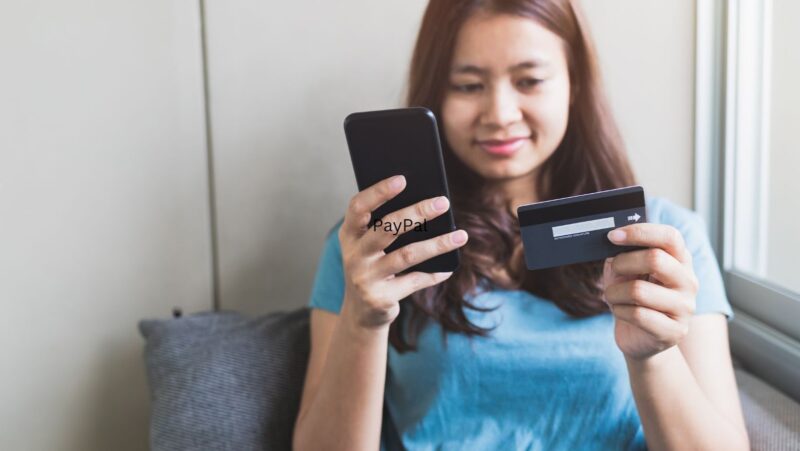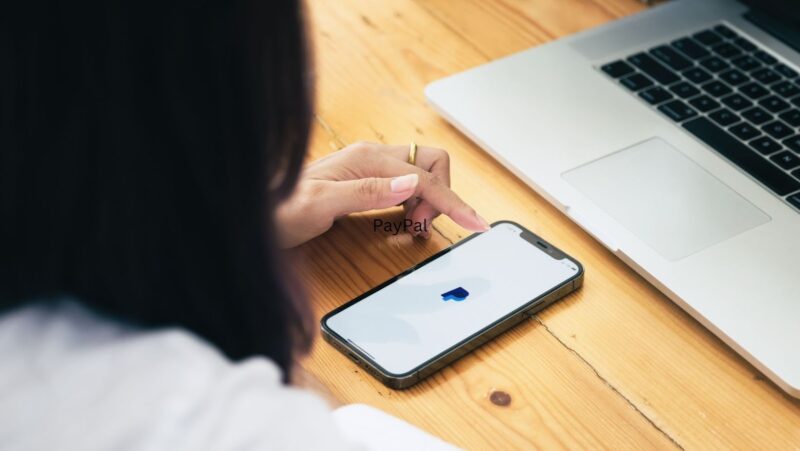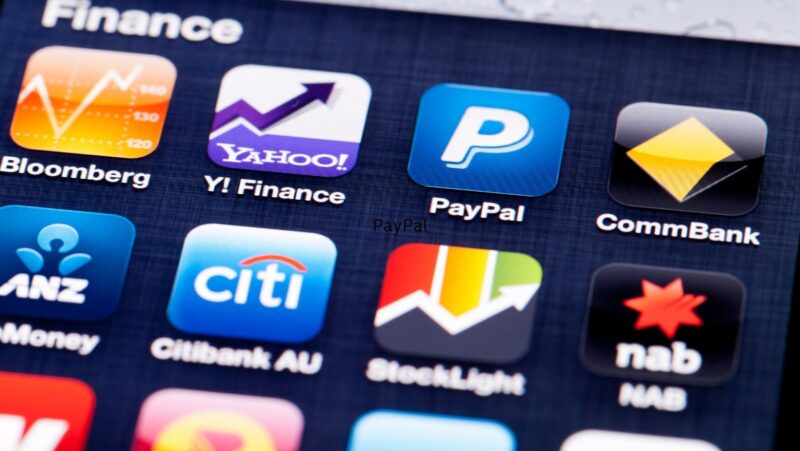PayPal is a secure payment platform, but there are still risks regarding online payments. For example, if your PayPal account is hacked, you must take the necessary steps to protect your account and identity.
Here, we will talk about what to do if you find that your PayPal account has been hacked and tips to prevent such a situation from happening.
Change your PayPal password immediately
If you suspect your PayPal account has been hacked, acting quickly is important. The first step is to change your PayPal password as soon as possible. To do this, log in to your account and select the “Change Password” option in the settings. Next, ensure you create a strong, complex password that won’t be easily guessed and is not used on other accounts.
Once you have changed your password, enable two-step authentication if it isn’t already enabled on your account. This adds layer of security to your account and helps protect you from fraud and unauthorized access in the future.
You’ll also want to check all the recent transactions associated with your PayPal account and ensure that none are fraudulent or unauthorized purchases. If anything looks suspicious or out of character for your usual activity, contact PayPal immediately so they can investigate further and help restore the security of your account.
Check your PayPal account activity
An account compromise can be extremely disruptive, especially if the hacker can change your payment settings or withdraw funds without your knowledge. To protect yourself and ensure that your information remains secure, it’s important to check your PayPal account regularly and monitor any suspicious activity.
Your first line of defence should always start within PayPal. As soon as you suspect an issue or notice something irregular, start by checking the activity log on your account and note any activity you weren’t responsible for. Pay attention to:
- Any payment details you don’t recognise
- Unfamiliar receiving accounts, merchants or websites
- Unknown locations where payments were sent from
- Unexpected changes to security settings like email addresses, passwords or PIN codes
This information will help identify fraudulent transactions and actions taken by hackers on compromised accounts. For example, suppose you’re unsure about a certain payment or have discovered unwarranted activity. In that case, it’s important to take action as soon as possible by contacting PayPal directly to limit any financial damages that might occur if a hacker accessed personal bank accounts linked with the Service.
Contact PayPal customer service
If you believe your PayPal account has been hacked, report it Cybercrimes Unit of the Central Authority for Information Technology (CAIT) in the UAE, by calling 800FNR800. You should also contact PayPal directly to inform them of the problem. It’s especially important to notify PayPal if you think that someone has extracted money from your account without your knowledge and authorization.
Once you’ve notified PayPal, they can take steps to help secure your account. This process involves canceling fraud payments, resetting passwords and usernames, and restoring access to compromised accounts. PayPal customer service can also provide advice and guidance on how to keep personal information safe in future transactions. In addition, they may communicate with you via email, phone or other means to resolve the issue quickly and efficiently.
Consumer protection laws vary between countries. Depending on where you live, seeking legal remedies such as restitution or damages might be possible when identifying a hacker. Be sure to consult with a lawyer specializing in recovering damages from cyber-crime in these circumstances if formal legal action is desired.
Is PayPal Safe?
With the rise of online payment services, many shoppers ask the same question – is PayPal safe?
As one of the biggest and most popular online payment services, PayPal offers a secure environment for shoppers to make purchases. However, fraud does happen and your PayPal account could be hacked.
In this article, we’ll discuss what to do if your PayPal account is hacked.
PayPal’s security measures
PayPal is committed to providing its customers with a secure way to pay and get paid online. To protect PayPal users from fraud and unauthorized transactions, PayPal applies several security measures.
The first layer of security takes place when you create an account, as you are required to provide a valid email address and phone number that can be used to confirm your identity. You will also be asked to create a strong password. This ensures nobody else can access your financial information or send money using your account without authorization.
Furthermore, all activity within your PayPal account is monitored in real-time for unusual activity, so any unauthorized access attempts will be detected immediately and blocked. Furthermore, all data exchanged between PayPal’s servers and users is encrypted with the highest security standards available in the industry today (SSL/TLS encryption). Additionally, users can use two-factor authentication (2FA) every time they log into their accounts. This adds another layer of protection since it requires you to enter a password and a token code sent to your phone or email address before gaining access.
To conclude, it is clear that PayPal has extensive measures to ensure the safety of its customers’ financial information and transactions made within their accounts – so rest assured when using it!
Tips for staying safe on PayPal
PayPal is widely used to send and receive money online, making it one of the most efficient and convenient ways to manage your financial matters. While PayPal is generally secure, you can never be too careful with your financial data. Everyone should familiarize themselves with best practices for protecting their PayPal account from unauthorised access. Here are a few tips to help you stay safe on PayPal:
– Enable multi-factor authentication for added security when logging into your account.
– Memorize or store securely any recovery codes generated through multi-factor authentication.
– Set strong passwords for all your accounts, using a variety of characters, capital and lowercase letters, numbers and symbols whenever possible.
– Avoid storing credit card information on PayPal as it could be accessible if your account is compromised.
– Regularly review all transactions associated with pending payments made to or from your PayPal account so that you can spot any fraudulent activity right away.
– Be cautious when clicking links in emails that appear from PayPal as they may lead to malicious websites that steal your payment details and passwords.
– Report any suspicious activity on your PayPal account immediately by contacting customer support via their website or telephone hotline as soon as possible.
PayPal’s buyer and seller protection policies
PayPal is a secure and user-friendly online payment system, offering buyers and sellers peace of mind when making payments. PayPal has implemented several buyer and seller protection policies to ensure your transaction is safe. These policies are designed to ensure that buyers are covered in case their purchased item does not arrive, or if the item received differs significantly from the advertised item.
The PayPal Buyer Protection Program guarantees these protections:
- Buyers have full coverage for the purchase price plus original shipping costs for an item not received or an item that does not match the description given by the seller.
- Protection covers transactions up to USD 20,000 within any 180 days.
- Buyers have access to customer service in multiple languages, which can assist with problem resolution.
- In disputes with sellers where charges are valid, PayPal issues buyers with a refund but reserves the right to recover funds from merchants before issuing a refund to remedy any high risk cases or damage done through misuse of PayPal’s services.
The Seller Protection Program protects sellers when they receive unauthorized payments by activating “limited payment” option (must confirm item eligibility) or if they ship items according to PayPal’s requirements including required proof of delivery and other criteria. With these measures in place, buyers and sellers can feel confident using PayPal services when transacting online.
How to Prevent PayPal Account Hacks
PayPal is a popular online payment system that allows users to send and receive money securely. Unfortunately, despite the security measures that PayPal puts in place, it is still vulnerable to hacking.
To ensure the safety of your accounts, it is important to take the necessary steps to prevent hacks. This section will look at the steps needed to protect your PayPal accounts.
Use a strong password
Protecting your PayPal account is essential to ensure your security and help prevent any unauthorized access. One of the most important steps is to select a strong password that is difficult for hackers to guess. It is also important to remember that passwords should never include personal information, such as names, birthdays or addresses, as these can be easy for hackers to discover.
When creating passwords for PayPal accounts and other online platforms, it’s best practice to use at least 8 characters consisting of letters, numbers and symbols; do not use any words from the dictionary and make sure phrases are unique. Use a combination of upper and lower case characters to create a password for maximum security. Additionally, try keeping track of all passwords within a secure and centralised system such as LastPass – password managers are great tools that enable users to create strong passwords without memorizing them.
To further increase security measures on PayPal accounts, users should enable two-factor authentication (2FA), or multi-factor authentication (MFA). This adds layer of protection by requiring another form of verification before you can log in; this typically involves texting a one-time pin code or scanning an automatically generated QR code. With two-factor authentication enabled on PayPal accounts, the chances of hacking will greatly decrease; there are more steps involved to gain access, which means it will be much harder for hackers to break into your account to steal money or sensitive information about you or your customers.
Don’t share your account information
While user accounts cannot be 100% secure, there are several easy steps you can take to help protect your information and prevent your PayPal account from being hacked.
First and foremost, it is important to be vigilant with your account details. Never share your username, password or other account information with anyone. Use a secure browser when accessing sensitive websites and check the website address (URL) of any link you may follow before clicking it. Be sure that this address begins with https:// which indicates the site is secure — avoid clicking on links and websites that don’t start this way.
When setting up a new PayPal account, use strong passwords with at least 8 characters, including numbers and letters. In addition, change your password regularly to reduce the chances of successful hacking attempts and always log out after using any secure website or application. Paying attention to these tips will go a long way toward helping keep your accounts protected from unauthorized access.
Enable two-factor authentication
Two-factor authentication (2FA) requires two pieces of information to log into your account – something you know (e.g. your password) and something you have (e.g. a temporary code sent to your mobile phone). PayPal offers this feature, though the exact setup details may vary depending on the type of device or program used. Before enabling 2FA, read PayPal’s security brochure and be aware of how it works to take full advantage of its protection.
Enabling 2FA is a great way to help protect yourself against fraudsters who may try to gain access to your account by guessing or “brute-forcing” your credentials. It is most important to keep both pieces of information secure – do not share them with anyone, as doing so might make it easier for someone else to gain access without you knowing about it. Additionally, ensure that all accounts used with PayPal are protected with separate usernames and passwords and set up notifications whenever payments are made.
Monitor your account regularly
Monitoring your PayPal account regularly is key to avoiding any malicious activity. In addition, checking your account periodically can help you spot any unusual activity, such as unexpected charges, the addition of unfamiliar payment methods, unauthorized login attempts from different IP addresses and other suspicious happening.
Be sure to check your recent purchase and transaction history, balance and withdrawal history frequently to ensure that no unauthorized payments have been made or fraudulent withdrawals taken place. Make it a habit to log out of your PayPal Account when you are done making payment or browsing the website. Logging into your account via unsecured public wifi is especially risky and should be avoided at all costs.
Ensure that any information associated with your PayPal account (including but not limited to phone numbers, addresses etc) are up-to-date so that you can receive notifications from PayPal if anything suspicious should arise with your account. Finally, link a trusted email address or phone number as secondary authentication for added security when logging in.
tags = Twitter’s Tip Jar, PayPal, Venmo, Cash App, using paypal twitter twitterbarrettwired, Bandcamp





More Stories
How LEO satellite communications can benefit iPhone users
Twitter Tip Jar users call for more transparency from PayPal
Pricing and Availability of iPhone 14 Pro Max and Oppo A16